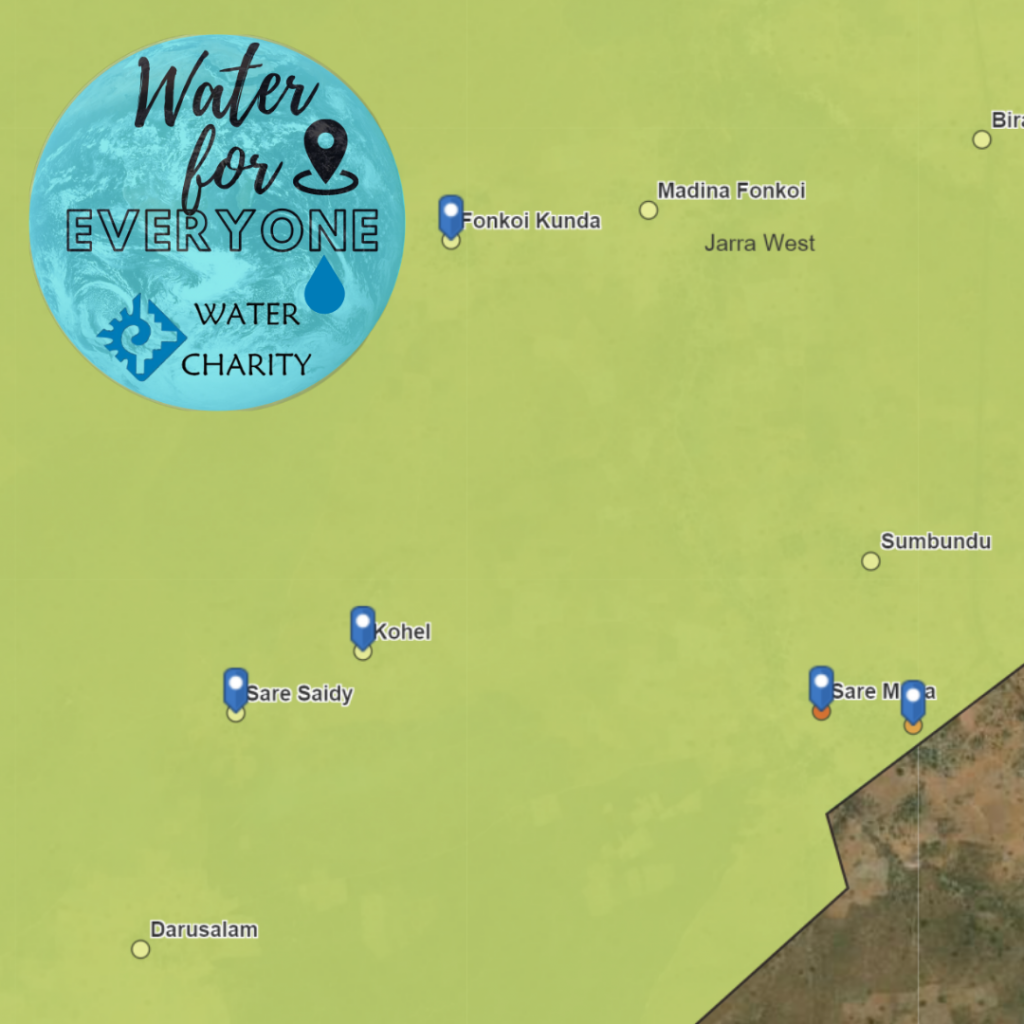
JARRA WEST, LOWER RIVER REGION
Households in Jarra West district are highly vulnerable to food insecurity, which can be attributed to the fact that many of the households in the districts are not strictly agrarian. The main economic activity is trade, especially in the town of Soma, where there are daily and weekly markets (Lumos).
The level of food self-sufficiency that prevailed in The Gambia 50–60 years ago, especially among agricultural households, was much higher than in recent times. The first major food crisis struck the country in the early eighties, which was as a result of drought and crop failure. Today, the food security situation continues to worsen, particularly for rural populations reliant on agriculture as their livelihood source.
Lower River Region falls within the Sudano-Sahelian agro-ecological zone. It has prolonged periods of dryness known for its longer growing season (79 – 119 days) and within a 600 to 900 mm rainfall is well-suited for groundnut, sorghum and cotton in the upland areas. However, the flood plains along the Gambia River and associated lowland valley systems are an excellent rice growing catchment for tidal irrigation.
The food insecurity situation is particularly worrisome in rural settlements in regions like Jarra West where farmers have lost 25% of their purchasing power over the years due to low production, and average annual farm incomes are below GMD 5,000 per capita.
The 2016 Comprehensive Food Security and Vulnerability Analysis survey results indicate that households having access to improved water and sanitation facilities are at least twice less likely to be food insecure, while households with an unimproved source of drinking water and poor sanitation facilities are more likely to be vulnerable to food insecurity.
Sare Saidy Village, GPS: N13°23.018 W015°34.063
Sare Saidy is a poor subsistence farming community of approximately 400 people. It has only one water source for the entire village, which has been broken for a long time. As a result, the community is now relying on a contaminated open well water, which risks the villagers’ health.
We will replace the cylinder, rod couplings (stainless steel), the concrete slab, conversion head and concrete water trough, plus add a handwashing station.
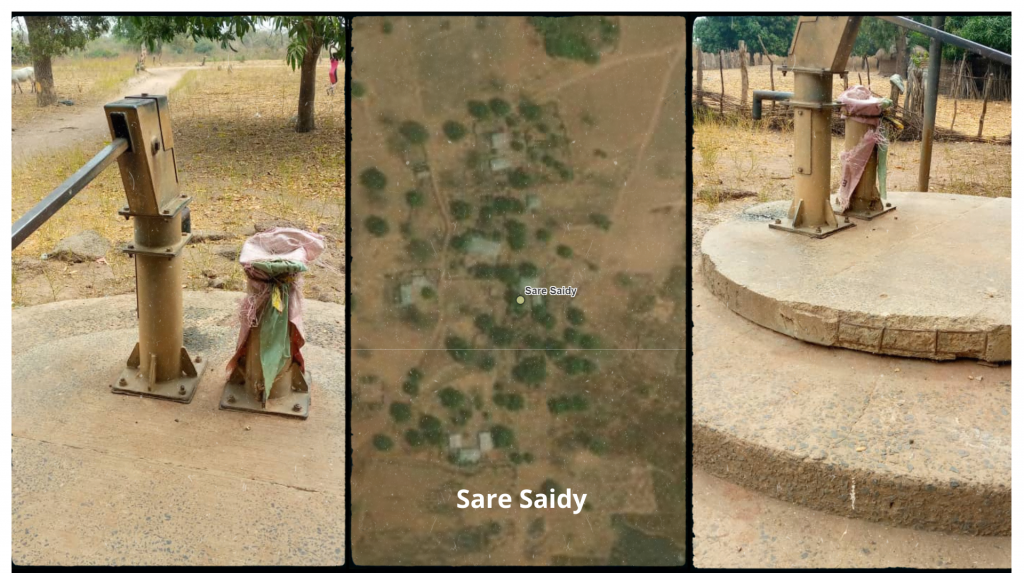
Misira Village, GPS: N13°22.934 W015°31.911
Misira is a border community between Gambia and the southern Senegalese region of Cassamance. With a population of roughly 800 people, Misira hosts a large number of settlers from Cassamance who ran away to settle in the community during the Cassamance rebel war in the early 1990s. The community is multi-cultural and multi-tribal. Its large population is profoundly affected by water scarcity.
We will replace the cylinder, install stainless steel pipes, as well as a concrete watering trough, plus a handwashing station.
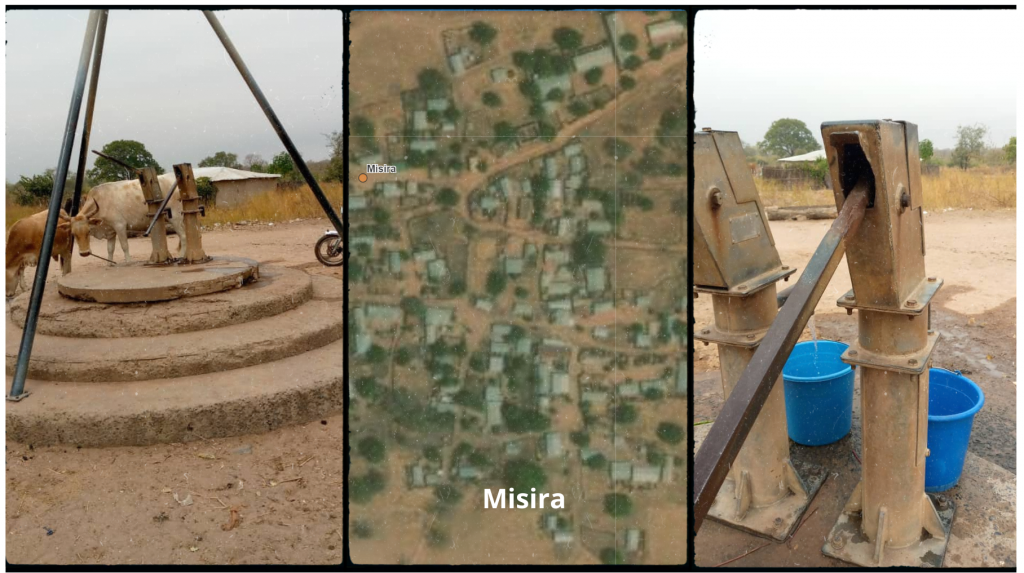
Kohel Village: GPS: N13°23.192 W015°33.706
Kohel is a Fula nomadic community of approximately 350 people largely dependent on domestic cattle rearing and subsistence farming. It is an isolated community and the illiteracy level is very high. A majority of girls drop out of school largely due to the demand for water collection within the household. The community is largely dependent on one water source, which is severely damaged. At the moment, people within the community travel 3 kilometers to fetch water from wells in a nearby village.
We will replace the cylinder, construct concrete water trough, and add a handwashing station.
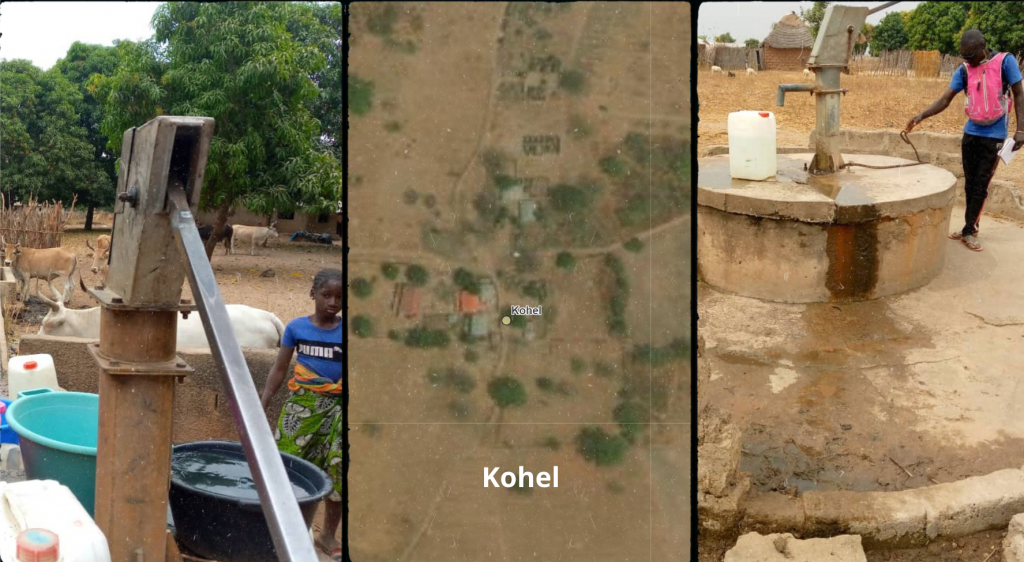
Sare Musa Village: N13°24.615 W015°31.891
Sare Musa is made up of approximately 300 members of the Fula and Mandinka tribes, most of whom migrated from Northern Senegal about half a century ago. The community has only one handpump, which barely works. The resulting water shortage is hitting the community hard. Frequent fights and quarrels occur at the water source due to the limited number of drops. Water scarcity is causing animosity among neighbors and creating a sense of insecurity within the community.
We will replace the conversion head, the cylinder, construct a concrete watering trough, replace the check-nuts, tank, rod couplings (stainless steel, install 8 pipes (stainless steel), plus add a handwashing station.
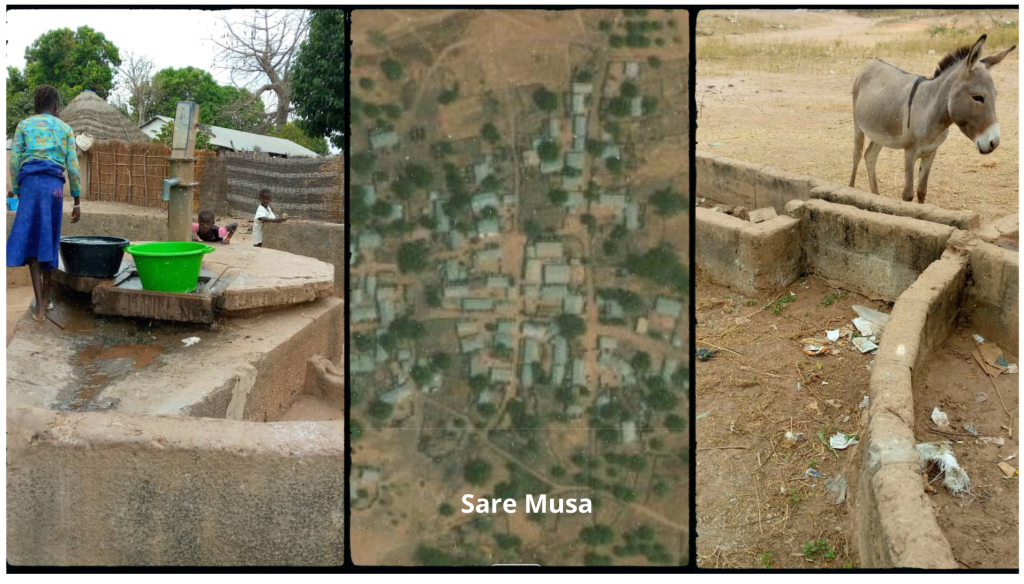
Fonkoi Kunda Village: N13°24.320 W015°33.431
Fonkoi Kunda is another community of approximately 250 people facing a severe water crisis. The community is heavily dependent on open wells. The only handpump in the village has been out of service for a long time. As a result, people frequently use donkey carts to travel to neighboring villages to fetch water. At times, they face hostile behaviors from the neighboring villages in the process of collecting water.
We will construct a new concrete watering trough, replace the cylinder, install 4 pipes (Stainless steel), replace stainless steel rod couplings, conversion head, tank, pedestal, plus add a handwashing station
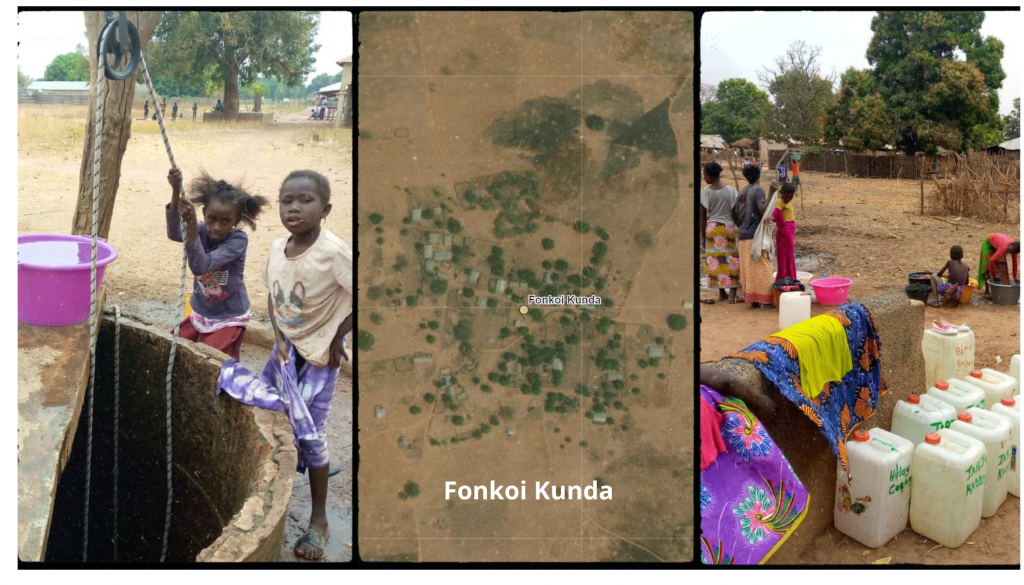
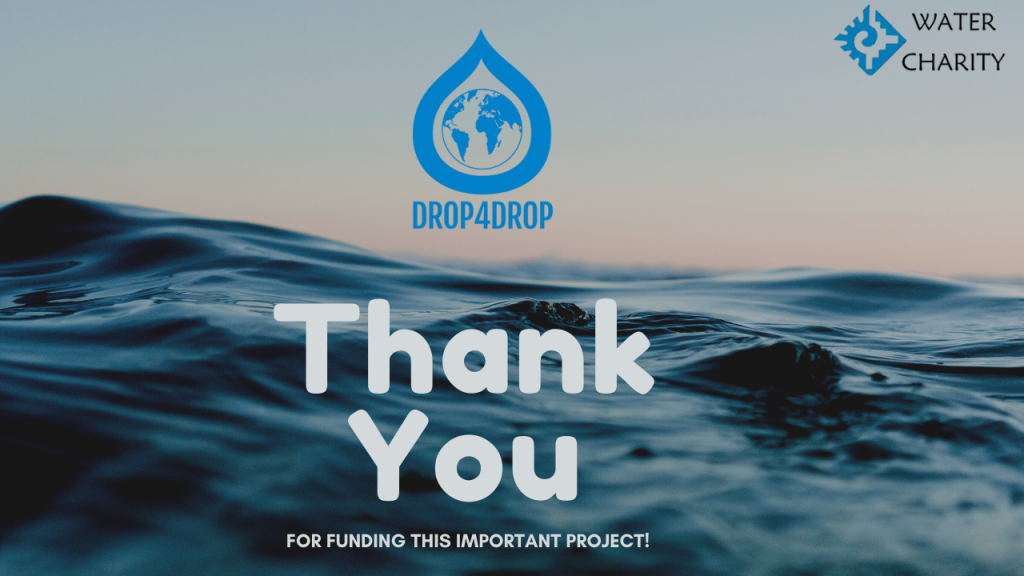
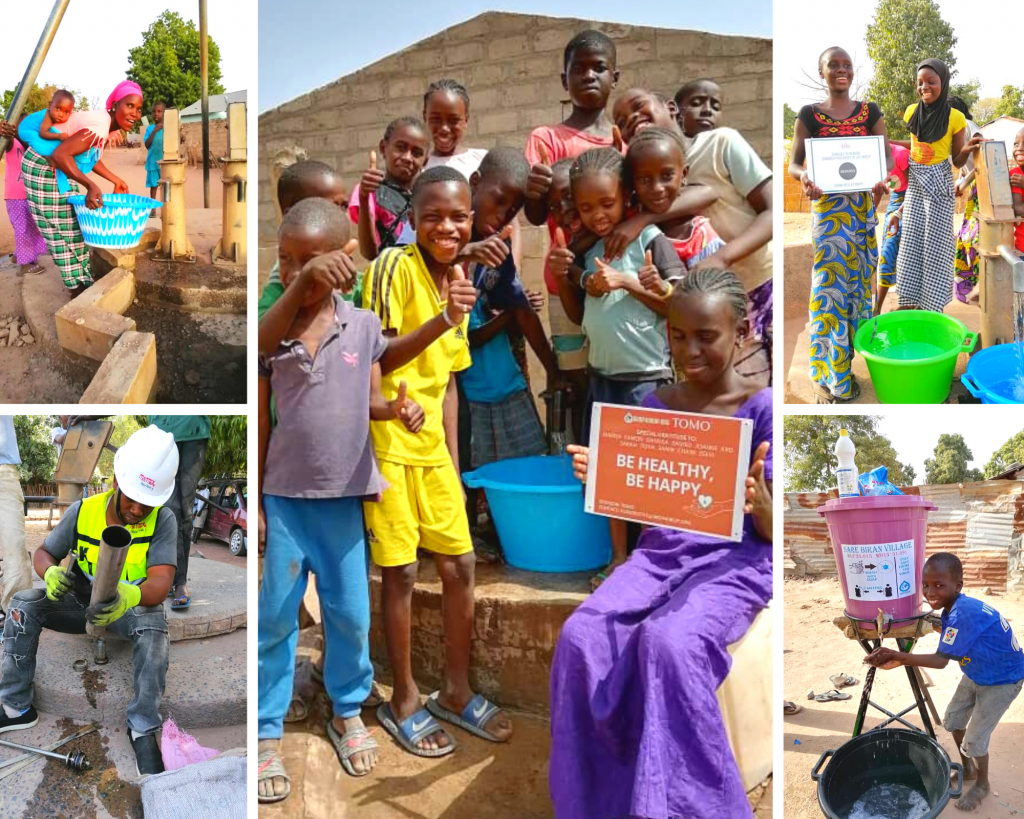

To read details about the conclusion of the project, CLICK HERE.